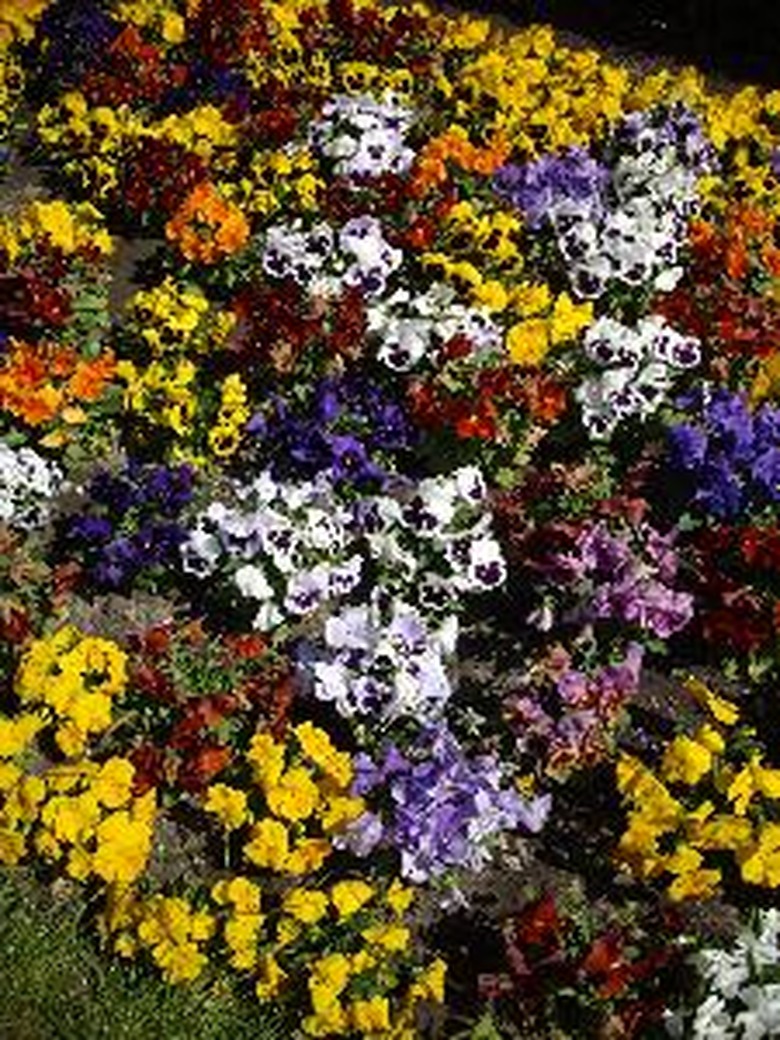How Much Cold Can Pansies Take?
Pansies are popular in home gardens, according to Utah State University Extension. Pansies, related to violas, come in a range of colors, including those with solid or multiple colors. Bloom sizes vary from 1-1/2 to 4-1/2 inches. The many varieties and long-blooming period of pansies make them a versatile addition to the garden. Pansies thrive in full sun and cool temperatures, remaining hardy in temperatures lower than those preferred by many flowers.
Ideal Temperatures
Ideal Temperatures
Perennials can grow as hardy biennials or annuals, depending on their location, according to Utah State University Extension. Pansies prefer temperatures during the night just a bit above freezing with 40 degrees considered ideal. During the day, pansies thrive in temperatures in the high 50s and low 60s.
Minimum Temperatures
Minimum Temperatures
Pansies generally bloom until fall, when frosts begin regularly occurring. In areas where temperatures seldom reach below freezing, pansies continue blooming throughout the coldest months. Some pansies even continue growing in temperatures well below freezing, as low as 2 to 5 degrees F, according to the Alabama Cooperative Extension System. Pansies produce abundant blooms in cooler temperatures, decreasing in vigor as temperatures rise.
Considerations
Considerations
Flowers survive improper temperatures better when other growing conditions remain ideal, and pansies are no exception. Moist, well-draining soil including organic matter and a low pH works best for pansies. Fertilize according to the results of a soil test for best results, suggests the Georgia Center for Urban Agriculture. In spite of the cold hardiness of pansies, most do not survive the winter in cold regions, such as the Midwest. In addition to temperatures colder than 2 degrees F, these areas present additional problems, including large amounts of snow and strong winds that bring the wind chill to well below zero in the winter.
Warning
Warning
Although pansies may survive the winter in many locations, they later succumb to the heat in the summer. These flowers prefer mild temperatures and do not tolerate temperatures above 65 degrees very well. They tolerate shady sites better than many other sun-loving flowers and may last longer in the summer when planted in areas with light shade to provide some protection from the sun.
